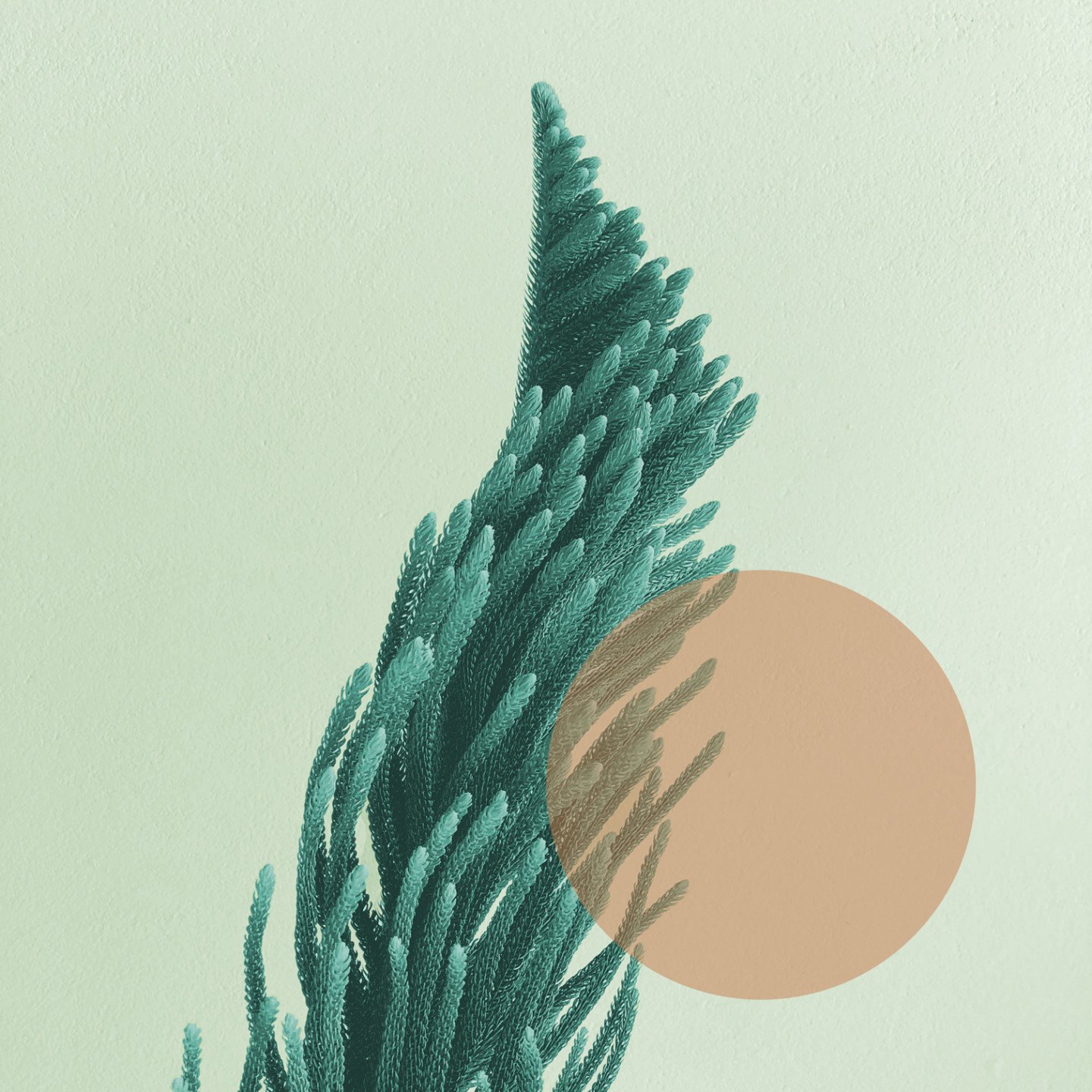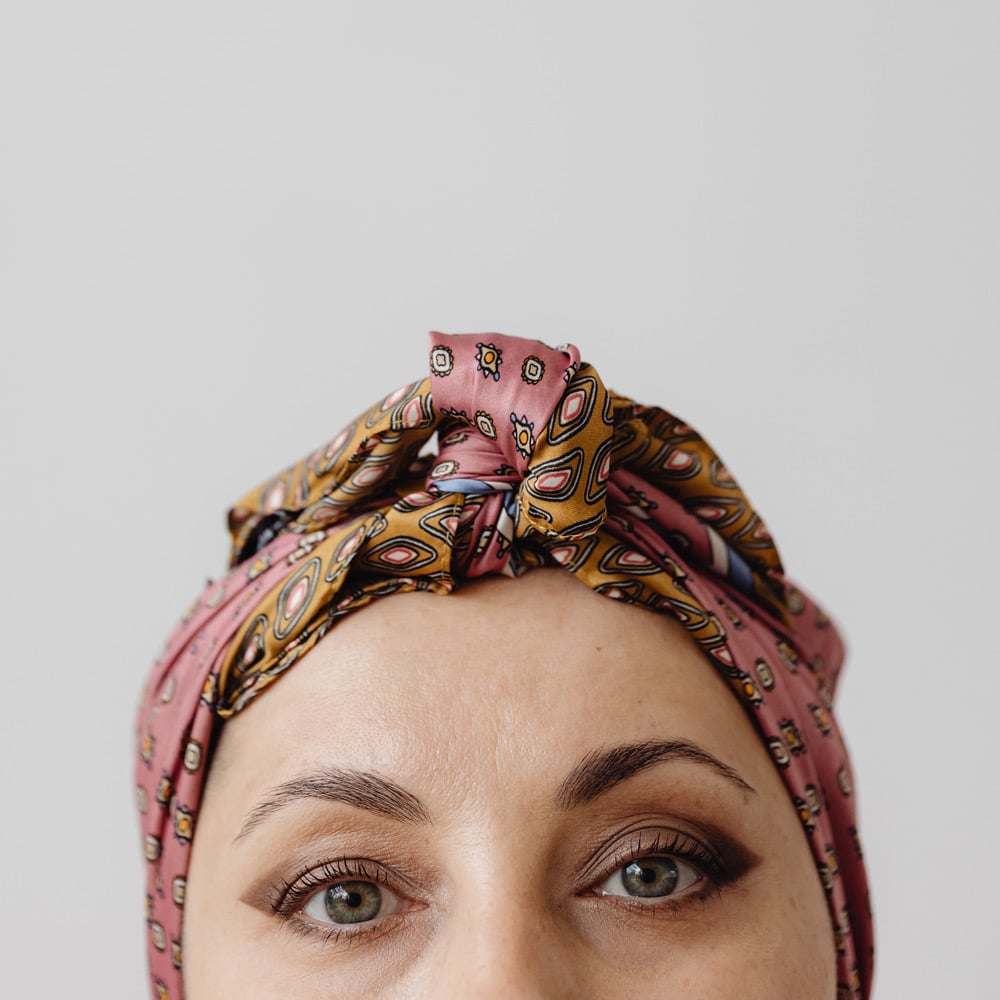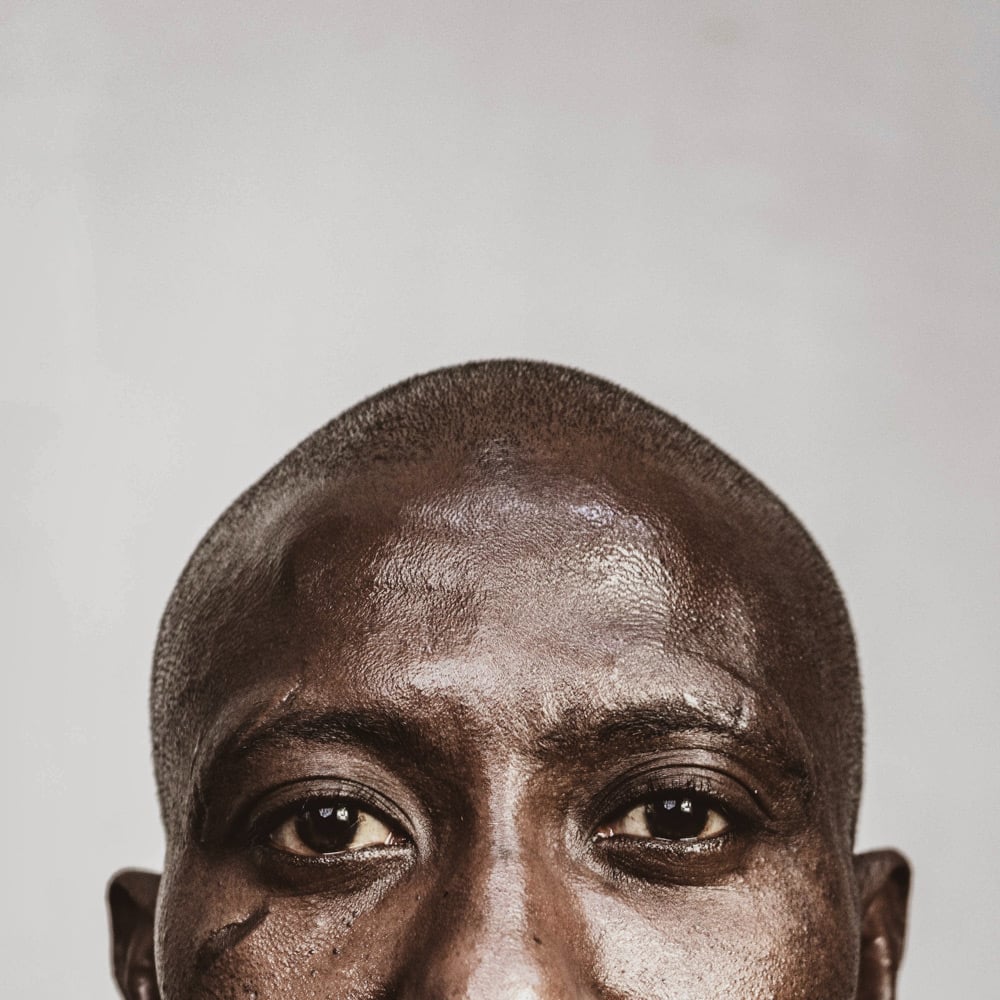
Key takeaways
- Talk about your feelings: a trusted friend or professional can discuss your fears and help you find practical next steps to help you feel more in control of what is happening to your hair.
- Diet can positively impact your recovery: eating foods which are rich in the Vitamins needed for hair growth is a positive step. Your body absorbs nutrients much quicker and easier from food than from a supplement such as Biotin.
- Take back control of your appearance: you have ownership over how you style this change in your appearance, from wigs to scarves and scalp concealer or shaving your hair. This autonomy can be a huge confidence builder, so seek help if you want it.
Although hair loss, in relation to other physical side effects of cancer treatment, might seem less significant, it can be one of the symptoms which affects people’s lives the most.
This kind of change in appearance can force conversations – with friends, work colleagues and neighbours – that you might not be ready for, and it’s a daily, visual reminder of what you’ve been through. However, it is a very common experience through cancer treatment and something that can continue into recovery, so there are many options out there to help you adapt.
Here, we spoke to three Perci Professionals with psychology, nutrition and body-confidence backgrounds, about managing the emotional and practical effects of hair changes.
Dealing with the emotional impact of cancer hair loss and regrowth
By Dr Simone Ruddick, psychologist
What psychological effects might a person feel as a result of hair loss or thinning?
Changes to the body due to cancer treatment can cause serious psychosocial consequences and negatively impact patients quality of life. Some of the psychological effects patients report include: anxiety, depression, a negative body image, lowered self-esteem, and a reduced sense of well-being (Hesketh, P.J., Batchelor, D., Golant, M. et al, 2004). For some they may be worried about how they look, others may be concerned it could affect their relationships.
Psychologists can help patients understand what hair loss means to them: what do they think about when they consider losing their hair? What worries them the most?
Dr Simone Ruddick, psychologist
What support can a psychologist provide to people experiencing changes in their appearance?
Psychologists aim to provide patients with a confidential, non-judgemental space to explore their thoughts and feelings about hair loss. They can help patients understand what hair loss means to them: what do they think about when they consider losing their hair? What worries them the most? How does this make them feel?
Identifying and challenging negative thought patterns can be effective in helping people see how their thoughts about hair loss impact their emotions. Visualisation and imagery can also be helpful, for example, imagining chemotherapy is killing off cancer cells at the same time it’s killing hair follicles, can help to see hair loss in a more positive way.

What practical advice can a psychologist give for dealing with hair loss from chemotherapy mentally?
Thinking through practical solutions to problems is a good starting point. Make sure to ask your doctors questions to gain a good understanding of what might happen to your hair. You may also consider cutting it yourself prior to treatment where it’s common for hair to fall out and research wig options. This can help reduce uncertainty and in turn alleviate anxiety whilst providing a stronger sense of agency.
Alongside psychological support, it is also important to develop your own social support network of people who are also experiencing hair changes. This can help ease feelings of isolation.
Understanding diet and its effect on hair growth
By Claire Moore, Dietitian.
After cancer treatment, how can diet and vitamins improve hair growth?
The diet that you eat can play a huge role in recovery, particularly when it comes to promoting hair growth. Hair usually grows back within 6 months to a year, but focusing on getting the right elements into your diet can help this process along.
The best foods to promote hair growth after chemo are:
- eggs
- seafood and oily fish
- vegetables including leafy greens, Brussels sprouts, broccoli and peppers
- fruit including oranges, grapefruit, berries, bananas and kiwis
- red meat
- whole-grain foods including cereal
- beans and pulses
- nuts and seeds
Vitamins for hair growth after chemo – which are beneficial?
Biotin, or Vitamin B7, is always the go-to vitamin when talking about healthy hair, skin and nails. There is however no solid clinical evidence to show that taking a supplement of Biotin for hair growth after chemo will improve it. Biotin deficiency is rare because we need very small amounts, and it is found in a wide range of foods. Good sources of Biotin are; whole-grain cereals, seafood, eggs and dark green leafy vegetables.
Vitamin A is known to keep our skin healthy by promoting the secretion of sebum. Sebum is an oily substance that moisturises the scalp, therefore reducing damage and promoting hair growth. There is some evidence to suggest that taking too much Vitamin A can lead to hair loss, so focus on dietary sources rather than high strength supplements to avoid this.
You’ll find Vitamin A in dairy products, eggs, oily fish, liver and liver products such as pate. (As pate is a particularly rich source of Vitamin A, it is recommended that you only have liver or liver products once a week and if you are pregnant you should avoid it completely).
Vitamin C is a powerful antioxidant that helps protect cells against the damage caused by free radicals. Vitamin C is found in a wide range of fruit and vegetables – not just oranges! Be sure to include strawberries, peppers, potatoes and Brussels sprouts in your diet to maximise your intake.
Biotin, or Vitamin B7, is always the go to vitamin when talking about healthy hair, skin and nails.
Claire Moore, dietitian
Animal products and seafood are a rich source of Iron, but if you prefer to follow a more plant-based diet, fortified breakfast cereals, dried fruit and pulses are a great source.
Be aware that polyphenols found in tea and coffee can inhibit Iron absorption. Research suggests waiting an hour after eating to drink your tea or coffee, particularly if you are known to be deficient in Iron. Research shows that a common side effect of Iron Deficiency or Anaemia is hair loss. As well as its antioxidant properties, Vitamin C has been shown to enhance the absorption of Iron. Try a squeeze of lemon or lime in your glass of water as an easy addition of Vitamin C.

Protein is crucial for the growth and repair of tissue and will support healthy hair regrowth. With each of your meals include a lean source of protein; eggs, fish, dairy, pulses or meat. Going through a course of anti-cancer treatment can have a dramatic impact on the diet that you are able to eat. As the side effects start to ease and your appetite returns to normal, ensure that you are eating a variety of proteins.
Aiming to drink at least two litres of fluid per day is another way of supporting your body in recovery. Making sure your skin is well hydrated reduces the risk of damage to your hair while it’s growing. If you struggle to drink two litres of plain water, choose to add cordials, slices of fresh fruit or use fruit teas to make the goal easier to reach.
Can supplements help to prevent hair loss during chemo?
There is very little research to show improving hair growth with extra high strength nutritional supplements. However, articles and very effective marketing can have you believing otherwise. The body is designed to take what it needs from the diet that you eat, and it does that far more effectively from food than a tablet.
Before spending potentially huge amounts of money on nutritional supplements, have a consultation with your doctor or a Perci Dietitian. We are able to look at your diet as a whole – including any restrictions you may have, your likes and your dislikes. We will advise you on the best way to add the right vitamins and minerals to support your individual recovery after cancer treatment.
Coping with hair loss after chemo: rebuilding your confidence
By Nevo Burrell, image and hair advisor.
When it comes to building confidence after cancer-induced hair changes, where is a good place to start?
There are many ways to build confidence when it comes to cancer hair regrowth, such as;
- Wearing make-up: if you don’t use it usually you can learn how to apply it through online tutorials or with an expert in-person.
- Wear accessories which bring you joy: for example, colourful glasses and jewellery which you have loved for a long time or complimentary new pieces which make you happy when you wear them.
- Question your style: what you loved to wear may have changed and this can act as a fresh start. Colour analysis and full image consultation is something that I offer my clients who are unsure where to start.
Try scalp concealer, a spray that matches the colour of your hair and disguises patchy regrowth.
Nevo Burrell, image and hair advisor
Are there any styling techniques and tricks to try when experiencing hair loss and regrowth?
Experiment with various wig styles. This is an opportunity to try hairstyles that you wouldn’t normally be able to. Most people choose to wear wigs, but you can also step out boldly without a wig too.
If your hair has begun to grow back, you can colour it. There are lots of fun colours as well as ones you can rinse out which are less likely to upset your scalp. Hats, turbans, berets, scarves and headbands are something to experiment with. As is scalp concealer – a spray that matches the colour of your hair and disguises patchy regrowth.
Explore the profiles and availability of Dr. Simone Ruddick, Claire Moore and Nevo Burrell.
Here at Perci Health, we are here to support anyone that has been impacted by cancer. If you think you or your loved one could benefit from virtual access to high-quality cancer specialists, find out more about our support types or how we help those living with cancer.
While we have ensured that every article is medically reviewed and approved, information presented here is not intended to be a substitute for professional medical advice, diagnosis, or treatment. If you have any questions or concerns, please talk to one of our healthcare professionals or your primary healthcare team.
References
Hesketh, P.J., Batchelor, D., Golant, M. et al. “Chemotherapy-induced alopecia: psychosocial impact and therapeutic approaches”. Jun 2004: https://doi.org/10.1007/s00520-003-0562-5
NHS Vitamins and Minerals Overview: https://www.nhs.uk/conditions/vitamins-and-minerals/
Teo Soleymani, Kristen Lo Sicco, jerry Shapiro. “The Infatuation With Biotin Supplementation: Is There Truth Behind Its Rising Popularity? A Comparative Analysis of Clinical Efficacy versus Social Popularity”. May 2017: https://pubmed.ncbi.nlm.nih.gov/28628687/
Leonid Benjamin Trost, Wilma Fowler Bergfeld, Ellen Calogeras. “The diagnosis and treatment of iron deficiency and its potential relationship to hair loss”. May 2006: https://pubmed.ncbi.nlm.nih.gov/16635664/
Hind M Almohanna, Azhar A Ahmed et al. “The Role of Vitamins and Minerals in Hair Loss: A Review”. Mar 2019: https://pubmed.ncbi.nlm.nih.gov/30547302/
“Eating problems after critical illness: My hair, nails or skin are different”. Jun 2020: https://www.bda.uk.com/resource/my-hair-nails-or-skin-are-different.html